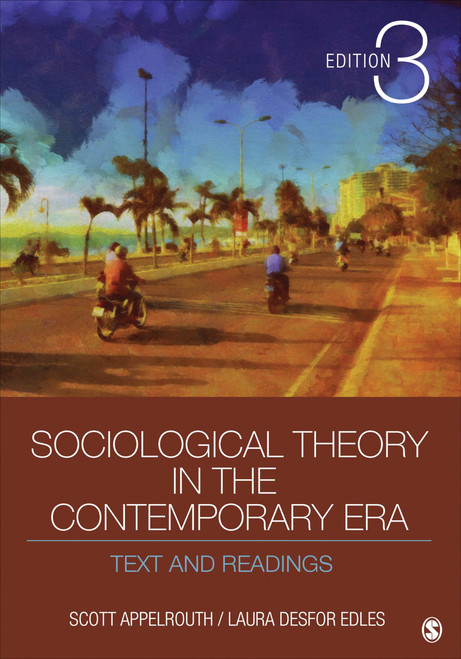Sociological Theory, Second Edition is a lively and accessible introduction to contemporary sociological debates. With additional material on theoretical developments since 1995, this substantially updated work is a systematic and comprehensive text presenting clear arguments on the relative merits of the different positions taken within sociological theory. In this second edition John Scott has re-ordered the chapters and chapter sections to draw out a strong narrative on contention and convergence in sociological theory.
A consideration of the work of Talcott Parsons sets the scene for subsequent debates on neofunctionalist, symbolic interactionist, rational choice, and conflict theories, together with recent developments in structuralism and post-structuralism. This second edition has been re-cast and updated to give a fuller discussion of the syntheses produced by Anthony Giddens and Jrgen Habermas, tracing their lineage back to Parsons's framework. It considers the various views of modern society depicted in these syntheses and it reviews the wider debates on modernity and post-modernity. The central argument of the book is that advances in sociological understanding arise from the synthesis of rival ideas, and it concludes with an exploration of those areas in which sociological theory is in need of further development.
New features of the second edition include:
- greater prominence for neofunctionalism in relation to earlier structural-functional theories
- discussion of the theoretical ideas of Pierre Bourdieu
- expanded coverage of post-structuralist theoretical ideas in relation to structuralist theories
- positioning of ethnomethodology and conversation analysis in relation to earlier work on symbolic interactionism
- a stronger positioning of debates over modernity and post-modernity as extensions of general theoretical debates.
Authoritative, comprehensive and written in a thoroughly accessible style, this text will have major appeal to students, researchers, teachers and specialists in sociological theory.











